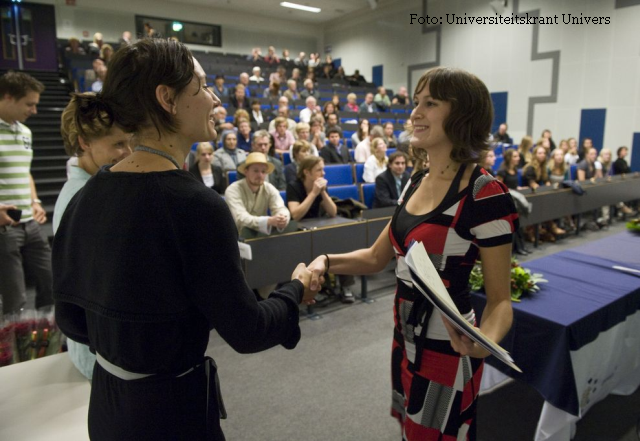The 50 Best Romanian Students Abroad
Lured by better jobs and salaries, over 50,000 thousand young people from Romania have left to study abroad.

România Internațional, 09.07.2014, 13:15
More and more Romanians are going abroad, lured by better jobs and salaries. The Ministry of Education does not have precise figures on that, but unofficial statistics indicate that over 50,000 young people have left to study abroad. The main destinations are the UK, France, Germany, Denmark and Holland. The better education they get there, combining theory and practice, as well as more opportunities to develop communication skills are just some of the reasons they choose to do so.
Five years ago, the League of Romanian Students Abroad was set up to offer information for people who want to study outside Romania, helping, at the same time, people who want to return home, according to Oana Franţ, Vice-President in charge of public relations with the League:
“So far we’ve run two studies, one in 2010 and another in 2011, with a third scheduled for this year. We ran them to check if Romanian students and graduates abroad want to come back home, and why. The study of 2011 showed that 30% of them want to come back, 30% don’t want to, and 40% are undecided. They would like to come back for the sake of family and friends, but mostly for the opportunity of a job that would provide them with the possibility of developing professionally and personally, with real chances of advancing in their careers. They want to be satisfied with their work, and to capitalize on their studies.”
A lot of Romanian students find jobs in the countries they studied in, but a lot prefer to come back home. What they would like most would be the opportunity to put into practice what they learned, and the chance for advancement. To this end, the League of Romanian Students Abroad launched last year a strategy called ‘Smart Diaspora’ in order to help Romanian students trying to return to their country. Here is Oana Franţ once again:
“Smart is a multidimensional strategy for attracting students in the diaspora. It is a public policy proposal, with the intent of capitalizing on the strategic potential of Romanians studying in prestigious universities abroad, helping Romania’s economic development. We have already had good results. We are talking about two projects, one of them is ‘Come on home’, acting as a go-between for students abroad and Romanian companies. The second is ‘Smart Internship’, an internship project with ministries, aimed at some of the best Romanian students abroad. For instance, last year we had 17 people who did internships in public institutions in Romania. It was a pilot project, everything went very well, and we will continue it this year.”
Around 200 Romanian students, from all over the world, competed this year for the ‘Romanian Student Abroad of the Year’ award, now in its fifth edition. 50 finalists were short listed for the 8 categories of the competition.
At 25 years of age, Sonia Coman has art diplomas from great universities, has hundreds of paintings, poems and personal exhibitions, and has a great love for Japan. She won best student abroad for 2013:
“My education is from American schools, such as Harvard, where I got my first degree, then Columbia, where I am doing my doctoral studies right now, but also from Romanian schools, where I laid the foundation, acquiring knowledge that was essential for my progress. I am honored to be in the company of so many valuable Romanian students who won awards or were nominated. I wish to emphasize the role played by the League of Romanian Students Abroad in creating and developing this relationships platform.”
Luca Victor Ilieşiu studies physics at Princeton, where his focus is on cosmology and theoretical research, analyzing models of the primordial universe. He won the title of Romanian Student in North America award for post-graduates:
“I believe this is one of the few organizations which went beyond the question ‘What can Romania do for us’ and went for the first time straight to the question: ‘What can we do for Romania’. I asked myself what my role is, and I took this task to heart. I want to help build the first Romanian center for advanced studies, similar to the one in Princeton, New Jersey, gathering all those who want to study theoretical sciences.”
Cristina Gavrila is one other young person with an interesting story:
“Right after high school, I wanted very much to study abroad. It seemed that there were way more challenges than in Romania. I chose to study marketing and communications at Aarhus University, in the second largest city in Denmark, Ashus. I came back to Romania after three years in Denmark, and one semester as an exchange student in Singapore. I came back, however, because I felt the need for a change, and I felt much more at home in my native country, much more so than in Denmark. I think it was the best decision, because I like life in Bucharest a lot. I am working for an international organization, and I am meeting more and more Romanians, both where I work and in the organizations I am active in, who chose to return home after working abroad.”
The UK and Holland have the most expensive schools, and studying there requires a state provided loan, while Denmark and Sweden have free state provided education.






























